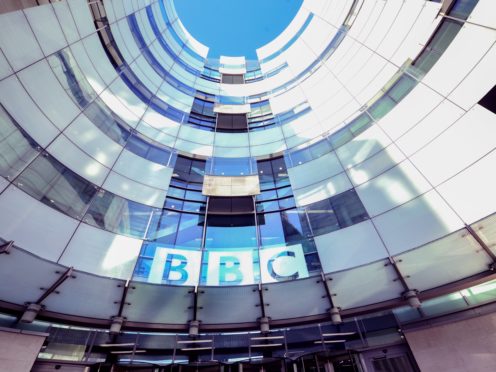Young people do not understand why they should pay for the BBC when they do not use it, according to a culture minister.
Nigel Adams denied a Government consultation on decriminalising non-payment of the TV licence fee is an attempt to undermine the BBC when challenged by Labour in the Commons.
But he insisted a “broader conversation” is required on the licence fee as to whether it is the “correct model”, amid fierce Tory criticism of the broadcaster.
The minister added that research, which suggested a lack of recognition of the BBC compared to Netflix among younger people, should be an “eye opener for all of us”.
Mr Adams told MPs: “There will need to be a much wider and broader conversation going forward beyond 2027 as to whether the licence fee model is the correct model.
“The current licence fee model is guaranteed until the end of that period.”
Liberal Democrat Christine Jardine (Edinburgh West) said the changing media landscape is being used as an “excuse” to make changes to the BBC.
Mr Adams said he did not agree before adding: “The broadcasting landscape is constantly changing. She’s absolutely right and it’s only going to get faster.
“If I could just refer to some research which Ofcom gave, and it found more children recognised the names Netflix than they do the BBC.
“This should be an eye opener for all of us. We on this side of the House believe the BBC is a beacon of British values but we should be alive to the changes in the way people are consuming television.”
Conservative former minister Sir Mike Penning added: “The younger generation, which is not actually represented very well in this chamber, do not watch the BBC any more – so why should they pay tax?”
Mr Adams replied: “He makes a fair point, that’s why we’re having this consultation… younger people, especially people I’ve spoken to over the last year, don’t understand why they have to pay for a service that they don’t use.
“I think it’s only right we look at whether criminalising people for non-payment of the TV licence fee is fair and proportionate.”
But Labour former minister Chris Bryant said he did not think Mr Adams believes in the licence fee, adding: “Nothing in life is free.
“Gavin And Stacey doesn’t come for free, Strictly doesn’t come for free, Sherlock, any of the great drama, comedy or documentaries from the BBC – none of that comes for free.
“It comes free-to-air as everybody pays in and everybody gets something in return.”
Earlier, asking an urgent question, shadow culture secretary Tracy Brabin said: “Can he assure me that this announcement is not part of a deliberate strategy by the Government to undermine an organisation with which it has been at loggerheads?”
Mr Adams replied: “I can give her that absolute assurance that this is nothing to do with what she mentions.
“I would just remind her that this is a consultation on whether it is proportionate and fair – we believe it is right to look again at whether criminal sanction is the correct model for the licence fee evasion.”
Conservative Philip Davies (Shipley) said: “If the BBC is as popular and value for money as (Ms Brabin) and others say it is, then surely it has nothing to fear at all from going to a subscription model because presumably everybody will be queuing up to pay their subscription as it’s such wonderful value for money.
“The reason why the BBC is petrified of abolishing the licence fee is it may emphasise how unpopular the BBC is and how few people want to contribute.”
Sir Edward Leigh, a Conservative former minister, said other options should be considered and questioned if it was fair to impose a “poll tax on elderly people just to watch television”.
Tory Damian Green, formerly deputy to Theresa May during her time as prime minister, highlighted comments which dismissed the idea that magistrates’ courts are “overwhelmed” by licence fee evasion cases.
